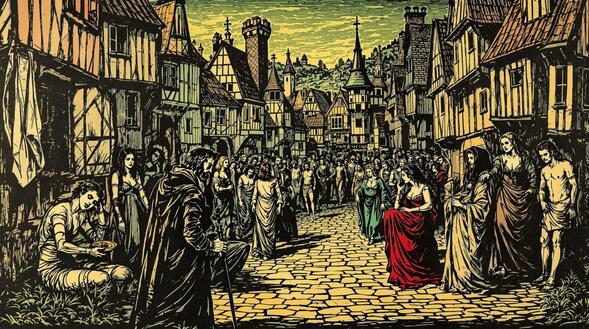Zarathustra begins this speech by expressing his preference for the forest over cities, stating that urban life is unfavorable due to the presence of too many “lustful” individuals. He suggests that being in the hands of a murderer is preferable to being in the dreams of a lustful woman, highlighting his disdain for impure sensuality. Observing men whose eyes reveal that they value nothing higher than being with a woman, he criticizes the base desires that, according to him, taint the soul with metaphorical “mud”. He laments that these individuals are neither innocent like animals nor fully aware of their own degraded state.

I love the forest. In the cities, life is wretched: for too many are in heat there.
He recommends embracing the innocence of the senses, and acknowledges that chastity can be a virtue for some but warns that for many, it almost becomes a vice. He describes how those who practice chastity often do so superficially, while deep within, the “bitch sensuality” envies everything they do. This personification indicates that suppressed desires continue to influence actions, leading to internal conflict.
Zarathustra further observes that even at the heights of virtue and within the coldness of rational thought, this creature of unrest persists. He notes how cleverly the sensual nature begs for intellectual engagement when physical desires are denied, illustrating the persistent nature of human sensuality seeking expression in other forms.
He criticizes individuals who are drawn to tragedies and experiences that break the heart, suspecting that their purported compassion masks underlying desires. Their intense gaze towards sufferers suggests that their sensuality has disguised itself as empathy. Zarathustra offers the analogy of those who, in attempting to exorcise their own devils, end up embodying them.
Addressing those for whom chastity is a struggle, Zarathustra advises against it, fearing that enforced chastity may lead to worse outcomes—turning into a path toward inner turmoil and decay. He emphasizes that discussing unpleasant truths is necessary and that depth is preferable to superficiality, even if it involves delving into uncomfortable topics.
Zarathustra acknowledges the existence of individuals who are innately chaste, characterized by a gentle heart and a propensity for laughter. These individuals question the very notion of chastity, regarding it as folly that came to them rather than something they actively pursued. They personify chastity as a guest to whom they have offered hospitality, allowing it to stay as long as it wishes.
